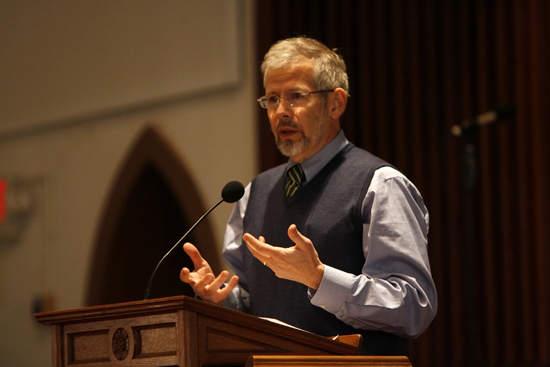Looking for more faith and social justice commentary? Check out our latest blog posts here.
By Willona Stallings, NC Policy Watch

In a recent letter to the editor published in Raleigh’s News & Observer, George Reed and Sandy Irving of the North Carolina Council of Churches praised the passage of federal health care reform legislation as an action that will mean earlier, better care for so many Americans and, for others, access to quality, affordable health care for the first time in their lives.
As representatives of a statewide ecumenical organization – one that promotes Christian unity among its member bodies and positive discourse among all faiths, and fights for equality, economic justice, peace and environmental stewardship – Reed and Irving cited their faith in the letter, stating that, “at its core, health care is a justice issue, a human rights issue, and, for many of us, a faith issue.” Reed’s and Irving’s letter attached a faith message to an issue that had, for the most part, been examined from political, social and economic vantage points only.
One reader’s response to the letter reinforced the fact that the coexistence of religion and government (i.e., church and state) remains a contentious issue in this country. The writer disapproved of individuals, regardless of their political affiliation, who attempt to drag religion into politics, and then scolded the faith community for relying too heavily on government to solve social problems… problems that we, as a body of faith, have been called to address through our faith – i.e., to feed the hungry, clothe the naked and care for the sick. According to the writer, “if the church would have done its duty, there would be no need for Social Security, Medicare or Medicaid.”
These were very strong words of reproof from someone who also identifies himself as a person of faith, words that got me thinking about the Church’s place in modern day politics and social change. Full disclosure: I, too, work for the NC Council of Churches as the Director of its new faith-based health initiative, Partners in Health and Wholeness (PHW), so my views on the issue are unapologetically biased. But I’m not writing to challenge the assertion that the Church has a role in helping our fellow citizens.
In fact, perhaps one of the most important takeaway messages from the respondent’s letter – and one where the Council is in agreement with him – is that the Church remains an institution of great influence in this country; that society still looks to us for prophetic leadership on a number of issues. For that very reason, we celebrate the new health care reform legislation and any other legislation that has the potential to improve the quality of life for the most vulnerable in this country.
In the 21st Century, we must no longer view Church as a semiweekly activity that occurs within the confines of a physical structure with four walls and a pulpit. Instead, we must take our message of hope, justice, unity and peace to the wider community, and, yes, even Capitol Hill! I believe that real change happens when various groups – public and private, secular and religious, progressive and conservative, privileged and disadvantaged, old and young, black and white – work together to achieve a common goal.
We at the Council answer a dual call to civic engagement and Christian service. We believe, as our forefathers did, that “all [people] are created equal, that they are endowed by their Creator with certain unalienable Rights, that among these are Life, Liberty and the pursuit of Happiness.” We also adhere to a religious call to “do justice” and “love kindness” (Micah 6:8), and to “let justice roll down like waters, and righteousness like an ever-flowing stream” (Amos 5:24).
Can the Church do more to ease the growing strain on our government? Perhaps, but we are already working at it. As an example, the Council’s newest program, PHW, is designed to reduce the health care burden on our state by improving the overall health and well-being of God’s people. By facilitating congregations to act as health promotion centers in their community – things like serving healthier church meals and promoting physical activity – we hope to empower congregants to potentially add years to their lives.
The work of PHW is not unique. The Church has long worked to meet the diverse needs of the community, but we cannot do it alone. Real change happens as a result of true partnership!
